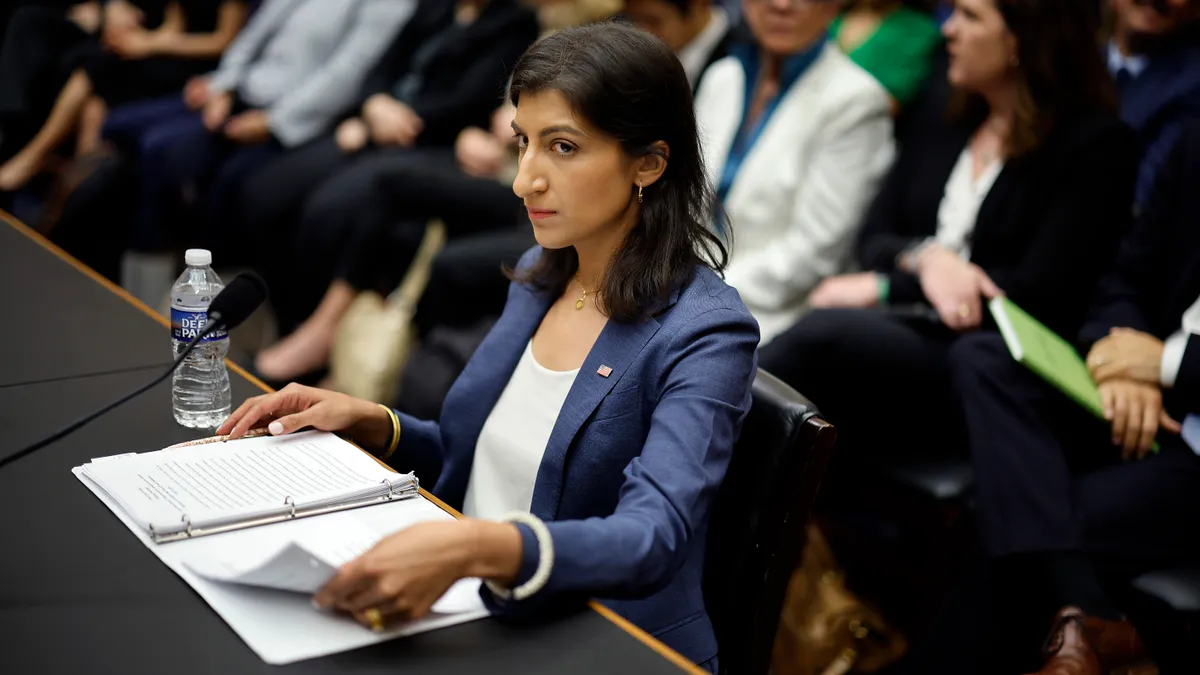The Biden Administration stepped up its antitrust efforts with the release of draft guidelines to give companies a picture of what the Federal Trade Commission and Department of Justice will consider problematic mergers when deals go through Hart-Scott-Rodino review.
“Competition today looks different than it did 50 — or even 15 — years ago,” Jonathan Kanter, head of DOJ’s antitrust division, said July 19. “Mergers that threaten competition or tend to create monopolies” will be scrutinized.
The guidelines organize reviews under 13 categories that look at mergers from both horizontal and vertical perspectives.
Even mergers that might not themselves impede competition but could further a trend toward industry consolidation would be given scrutiny. “Agencies [will] examine whether further consolidation may substantially lessen competition or tend to create a monopoly,” the guidelines say.
To capture the growth of multi-sided platforms like Uber and Amazon, the guidelines call for review of how a merger would affect competition between or on a platform, among other things.
“Multi-sided platforms have characteristics that can exacerbate or accelerate competition problems,” the guidelines say. “The agencies [will] consider the distinctive characteristics of multi-sided platforms carefully.”
“This update is sorely needed, long overdue, and will help businesses and regular Americans,” Lisa Gilbert, executive vice president of Public Citizen, said in a statement. “By releasing the new guidelines, the FTC and DOJ are working to ensure that they can access the tools, available under longstanding law, to push back on one of the main forces behind corporate concentration: mergers.”
Difference in views
In several high-profile cases, courts haven’t shared the Biden Administration’s view of what constitutes a problematic merger.
Just a week ago, the Federal District Court for the Northern District of California denied the FTC’s effort to stop Microsoft’s $69 billion acquisition of game maker Activision Blizzard, saying the agency provided no evidence the merger would hurt rival gaming console makers, especially in their effort to host the popular Call of Duty gaming franchise.
And in February, the same court allowed Facebook parent Meta to move forward with its acquisition of virtual workout app maker Within Unlimited over the FTC’s objections. “The objective evidence does not support a reasonable probability that firms in the relevant market perceived Meta as a potential entrant,” the court said in its ruling.
FTC Chair Lina Khan, pictured above, has become a lightning rod for critics of the FTC’s approach to antitrust enforcement, and the agency’s court losses have reinforced the view the agency is seeing competition threats where others don’t.
Harold Furchtgott-Roth, a former Federal Communications Commission board member, has called out Khan for launching an investigation into OpenAI, the generative AI company, for what he said appears to be a retaliatory move for the agency’s antitrust loss last week to Microsoft. Microsoft is OpenAI’s main financial backer.
“I’ve seen this in government regulatory agencies in the past,” Furchtgott-Roth, an economist, told Legal Dive. “When you lose in court, you create some problem for a company in some unrelated area.”
The FTC’s OpenAI investigation is looking at how the company gets the data on which it trains its large language models and whether it's engaged in unlawful data security practices, among other things.
Criticism expected
The draft merger guidelines are likely to spur continued criticism of the Biden administration’s antitrust approach.
One category calls for review of deals just on the grounds they could increase the risk of coordination among companies, a matter that has riled critics in the past, including a critic that once sat on the FTC’s board.
Christine Wilson, who resigned from the FTC in February after repeatedly differing with Khan’s approach, criticized the agency for seeing collusion where others see legitimate business activity.
“Conduct that courts repeatedly have refused to condemn may now be subject to summary condemnation,” Wilson said late last year in a critique of the antitrust policy statement the FTC was writing at the time. “Newly condemned conduct may include tacit coordination, parallel conduct … de facto tying, bundling, exclusive dealing, and loyalty rebates,” among other things for which there could be a legitimate business interest.
On this and other occasions, Wilson called out the agency for going down a path in which it views as anti-competitive behavior that doesn’t meet the legal standards that courts apply.
Under its views, Wilson has said, the FTC “is willing to disregard judicial experience. In other words … the Commission majority will challenge as ‘unfair methods of competition’ practices that courts previously, and repeatedly, have found to be legal.”
DOJ and FTC, which released the guidelines jointly, are taking comments for 60 days, or until September 18. The FTC vote to approve the draft guidelines was 3-0. Two new commissioners to replace Republican appointees Wilson and Noah Joshua Phillips, who resigned in October 2022, were appointed in early July but did not vote on the draft guidelines.



















